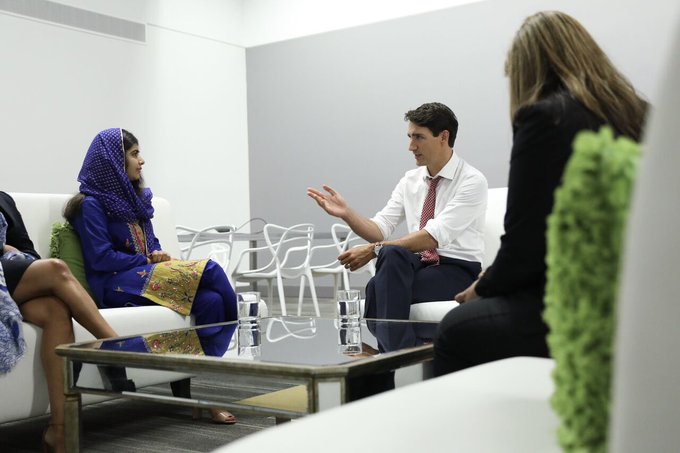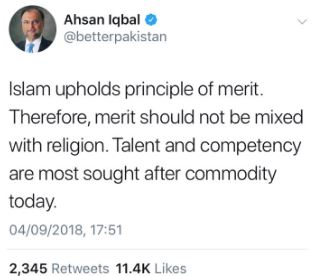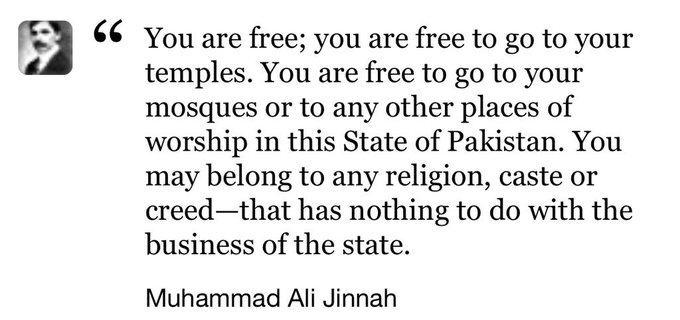Zarrar Khuhro
There are times when you don’t know whether to laugh or cry, times when you ride the crazy train and hope it doesn’t go completely off the rails.
With the appointment of an Economic Advisory Council comprising some very highly skilled and world-renowned economists, it seemed as if the governance train had left the station at an impressive clip.
But the ride got bumpy; one of the economists happened to be Atif Mian — his impressive CV was the reason for being on this council — but alas, in a completely predictable development — it was his faith that became an issue.
There was a tweet — quickly deleted and disowned — from the Pakistan People's Party Shehla Raza. Then a notice in the Senate and National Assembly, presented by Jamiat Ulema-i-Islam-F and signed off by the Pakistan Muslim League-Nawaz (PML-N), Jamaat-i-Islami, Awami National Party, Pakhtunkhwa Milli Awami Party and the National Party.
Surprisingly, Information Minister Fawad Chaudhry came out swinging on the front foot, throwing down the gauntlet and taking a very strong stance defending the appointment, not just once but several times.
But that was a false dawn. Just a few days later came capitulation. Atif Mian was
removed from his post. Pakistan Tehreek-i-Insaf (PTI) said he had been removed and hours later, he claimed he himself had stepped down.
Even here, simple messaging and damage control failed rather miserably. No face saving was to be had.
In protest, Asim Ijaz Khwaja and Imran Rasul
also quit the councilciting their inability to continue in this advisory capacity after seeing the treatment meted out to Atif Mian.
Economists across the world are aghast at this decision — the same economists who at times advise their own governments about how to interact with countries like Pakistan.
But what could the government do in the face of such reckless hate? Should they have allowed the country to burn as a result of a single appointment?
Surely not.
Surely the real blame lies with those who outed Atif Mian as Ahmadi.
Yes, that must be it, and this would be a fair argument if not for the (again) inconvenient fact that the government — the one that knows no fear — knew this all along, and knew what the consequences would be.
Let’s now travel to the distant past
Rewind a whole four years to 2014, when a grand sit-in was being held and the nation was held spellbound by the daily speeches of the Dharna Days.
In one of those speeches, where Imran Khan was waxing lyrical about one of his favourite topics — appointments on merit — he mentioned a man called Atif Mian (sounds familiar, I know) whom he extolled as a renowned and globally acclaimed economist he would appoint as finance minister.
Who else would he appoint, thundered Khan to the approving roars of his followers, his samdhi?
But just a few days later, a delegation of well-meaning persons went up to Khan as he rested in his makeshift office to inform him that the man he had named was (shock and horror!) of the wrong faith; surely Khan had not been aware of this and would reconsider.
And he did.
I realise that we have the memories of goldfish and the incredible ability to not just rewrite history, but reality itself, but this wasn’t that long ago.
It’s a Google search away, and can be looked up in less time than it takes to tweet “you khooni liberal patwari r da cause of all Pakistan problems u illuminati yahoodi traitors”.
Trust me, I timed it.
So not only was the reaction expected, the government went a step further and put Fawad Chaudhry in the firing line, only to effectively throw him to the wolves a few days later.
Forget about principles of merit and tolerance — who cares about such nonsense anyway? But do consider what this says about the government’s decision-making ability.
For a government that loves to talk about Jinnah ka Pakistan and the more devoted followers of which never fail to compare Khan to the founder of the country, this was a failure on a very elementary level that flies in the face of Jinnah’s oft-repeated quote:
"Think 100 times before you take a decision. But once that decision is taken, stand by it as one."
But we didn’t need Jinnah to tell us this. This is a fundamental principle of management and frankly, something we pick up as children without even needing it to be taught.
Clearly, no one in this government got that memo.
And here’s when it gets truly incomprehensible: this is a government that does not have the judiciary on its back, which has the visible and clearly signalled support of the military and has a popular mandate with no political opposition worth the name.
And yet it cannot stick to a simple decision which had not even been effectively challenged yet.
This is a government that had built up some religio-political capital by taking a stance on the despicable Geert Wilders’ caricature project and then taken credit for its cancellation.
This is a government that — unlike the wounded PML-N at Faizabad — could have sustained the pressure and called the bluff.
And this is where it gets scary: sharks can smell blood in the water from miles away — or so I’m told by the good people at National Geographic — and are already circling around. That’s the thing with sharks — they are beasts of limitless appetite and aren’t usually amenable to compromise.
To wit, you can’t ask them to bite off your hand and then expect them to leave the rest of you intact. And here you were literally in a shark cage with no need to make a blood sacrifice.
To some, this is karma.
After all, the PTI relentlessly weaponised religion against the former government (Captain Safdar and his theatrics notwithstanding), and continued to use it even after Ahsan Iqbal had nearly been murdered and so — some say — it is kosher to use the same tactics against them.
While one cannot agree with that, it is again clear that even the most benighted mind could and should have seen this coming.
After all, when you use the language of the extreme right, it is the extreme right that gains. In no time at all, blame will be shifted to the opposition, to internal party factions, to random Twitter accounts and international conspiracies.
And more than blame, people within the government will even take credit.
In no time at all, we will move on, distracted like a child is by a set of shiny keys being rattled.
The first clinking of this was heard on the day Atif Mian was removed. That evening, Prime Minister Imran Khan took to the airwaves not to explain this turnaround, but to appeal for funds to build a dam.
After all, we are a resilient nation — as resilient as a battered wife who always hopes that the next time around the beating will end in only a bloody nose and not broken bones.
What is this you say? That’s not how resilience is defined?
Well that’s your fault for not updating to the ‘naya’ dictionary where up is down and black is white. Meanwhile the rest of us can huddle on the banks of the great river of denial.
Now, if we could only build a dam on that mighty waterway we could, maybe, stop drowning in idiocy.














